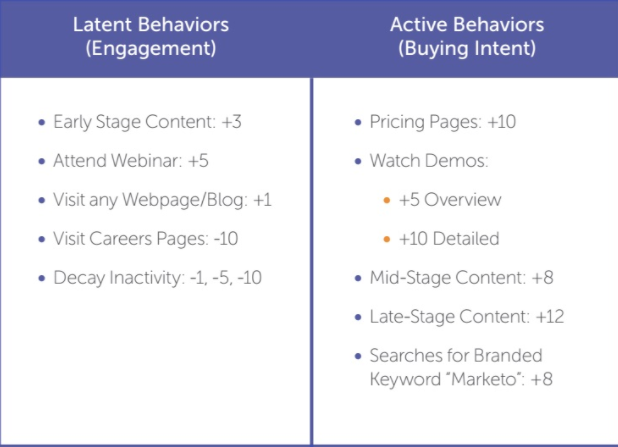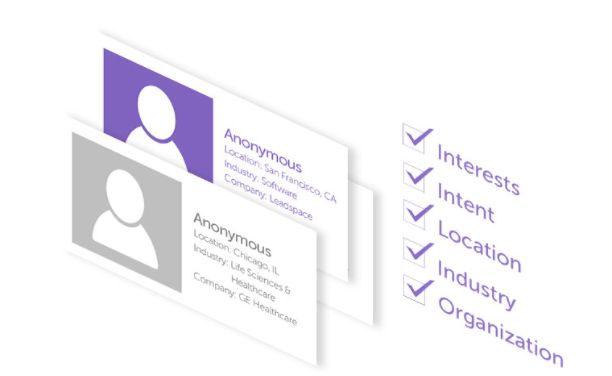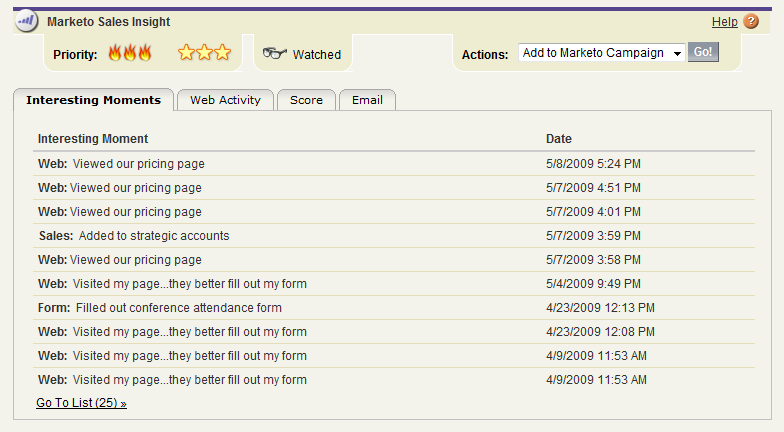You know the basics of marketing automation: it streamlines, automates, and monitors routine marketing tasks. But a good marketing automation platform is about more than making life easier for the marketing team—it should also help you close more deals.
So, how can you tap into different aspects of marketing automation to increase sales? Check out these seven tips:
1. Pass Over Sales-Ready Leads Using Lead Scoring
Tired of hearing sales complain about marketing’s unqualified leads? Determining when a prospect is sales-ready can be difficult, but a robust marketing automation platform scores leads behind the scenes.
Lead scoring is an automated strategy that adds or subtracts points from each lead based on actions taken or not taken. It can also be used to track demographic data to provide a higher score to a lead that fits your ideal buyer persona. When a lead reaches a threshold that you set, it is deemed “sales-ready” and is passed onto the sales team.
Here is an example of some lead scoring you can implement, based on behaviors:

Lead scoring helps ensure that your sales team doesn’t waste time on unqualified leads. It can also shorten overall sales cycles.
2. Personalize Your Website
By the time a lead hits your website, they’ve already gained an impression of your company. A personalized website will increase your conversion rate and make a better impression. The lead and customer data (who they are, where they work, online behavior, etc.) can be used to personalize landing pages and other web content seen by each lead. Even anonymous web visitors’ experiences can be personalized.
For example, if you are an online retailer, and a visitor who has been shopping for winter coats finds your website, a web page for winter coats would be presented first. Personalized web content helps build a better, more personal, relationship with leads and ensures that their experience with your company is the best it can be–and therefore increases in sales.
3. Provide Your Sales Team with the Info They Need to Follow Up
To make sure your sales-ready leads are being followed up on with the right message by sales–it’s important to provide sales with the information they need to have the best conversation. By tracking the interactions leads have with your company and providing that information to sales in an easy spot, such as their CRM system, sales will be able to have a personalized and effective conversation with each sales-ready lead.
Here is an example of a dashboard that can help prepare your sales team. It’s called Interesting Moments, and it’s a part of the Marketo Sales Insight application in Salesforce.
4. Keep the Conversation Going Using Triggered Emails
When a lead interacts with your company, it’s important to stay top of mind by keeping the conversation going. Triggered emails get sent automatically based on a lead’s actions. They help turn more leads into real customers without wasting your sales team’s time. For example, if a potential customer views a pricing page, an email designed for interested customers can be sent.
Triggered emails have been shown to perform three times better than other types of emails (even batch emails).
5. Segment Your Lead Nurturing
In an ideal world, all marketing leads would be sales-ready. But in reality, most leads are not ready and need some nurturing before they can be passed to sales.
By implementing segmented lead nurturing, you can provide specific content to each lead to push them to become sales-ready–when they are ready. Segmented lead nurturing can be done by industry, role, or company size.
6. Track Your Leads on Every Channel
Your prospects are on every channel—whether it’s browsing on social, searching the web, heading to events and more. It’s important to track each interaction your prospect has with your company–no matter what channel. This will help guide your message to a prospect, based on what types of content your audience is interacting with. This will help increase sales because relevant content is the number one way to keep a prospect engaging with your company.
Use tools native to your engagement platform like predictive content, web personalization, digital ads and triggered emails to help you engage your leads with a timely, relevant and personal message, while also capturing data about their engagement (or lack of engagement) with your message or content.
7. Track Your Results and ROI
Doing the same thing over and over hoping for different results isn’t going to cut it in today’s digital world! Marketers need to be tracking the ROI of every program they run to see if there are tangible results. An ideal ROI is 5x–meaning you are generating 5 times the amount of pipeline or revenue compared to what you paid to run this program.
By tracking this type of data, you’ll know which programs yield the best results for revenue – and keep running those programs and cancel the ones that are not performing.
An engagement platform with marketing automation doesn’t just offer benefits for the marketing team—it can help sales win more deals, more often and more efficiently.

